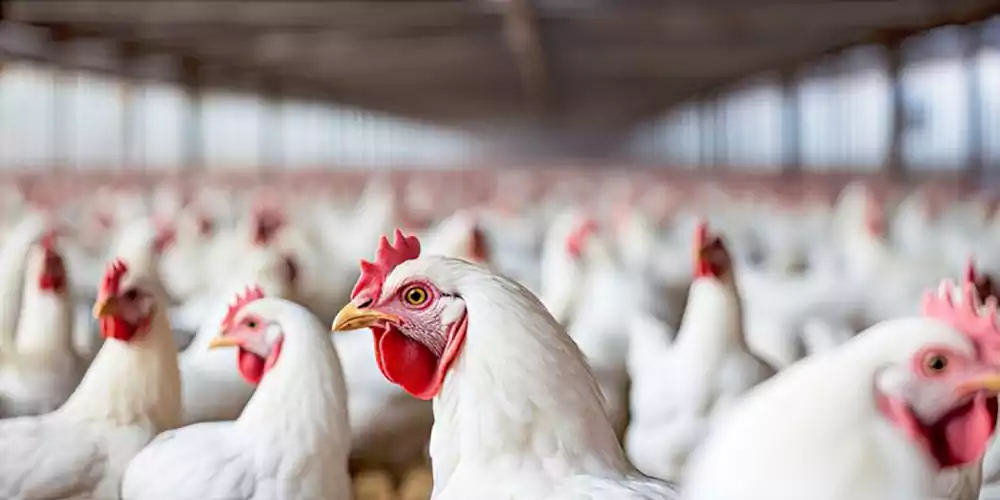Poultry Farming Business for Beginners

Poultry farming can be lucrative and rewarding if you plan and prepare well. You need to design your business carefully by considering all its aspects. From setting up some basic infrastructure to raising the birds and marketing your products, you must take every step wisely. Remember that there are many other poultry businesses in the market.
However, if you run your business prudently, it will likely grow rapidly. The demand for poultry products is increasing every day. So, despite stiff competition, there is a lot of potential for the fast growth of your poultry farm as long as you follow some business fundamentals. Your return on investment will be quick.
I’m Danial, and today we discuss how to start poultry farming. Here are nine essential rules for building a successful poultry business.
Define Your Goals and Scale
Before starting your poultry farm, you need a clear idea of what you want to achieve and how big your farm will be. Do you want to raise poultry for personal consumption or selling? How many birds do you want to keep? What kind of poultry do you want to raise? Answering these questions will help you determine the type of housing, equipment, feed, and management practices you need for your farm.
Choose a Suitable Location
Finding a location with enough space, good ventilation, access to water and electricity, protection from predators and extreme weather, and compliance with local regulations is essential. You must also consider the distance from markets, suppliers, and customers. Choose a location close to your target market and with low competition.
Build or Buy Appropriate Housing
You will need different kinds of accommodation depending on the type and number of birds you want to raise. For example, chickens can be kept in cages, coops, or free-range systems. Cages allow for high stocking density and easy management but may compromise animal welfare.
Coops are wooden or metal structures that provide shelter and nesting boxes for chickens but require more space and cleaning. Free-range systems allow chickens to roam freely in a fenced area but may expose them to predators and diseases.
Equip Your Farm With The Necessary Facilities
To ensure the health and productivity of your poultry, you will need various facilities such as feeders, drinkers, heaters, lighting, ventilation, waste disposal, egg collection, and slaughter equipment. You also need a storage area for feed and other supplies.
Obtain Quality Stock And Feed
Buying healthy and productive birds from reputable sources that can provide you with vaccination records and genetic information is essential. You also need to buy high-quality feed that meets the nutritional requirements of your poultry. You can purchase commercial feed or make your own using ingredients such as corn, soybean meal, fish meal, vitamins, minerals, and additives.
Manage Your Farm Effectively
Following good management practices is essential to ensure the welfare and performance of your poultry. Provide clean water and feed regularly; maintain proper temperature, humidity, and lighting; prevent overcrowding and stress; monitor health and growth; vaccinate against diseases; treat illnesses and injuries; cull unproductive or sick birds; collect eggs daily; market your products; keep records; and follow biosecurity measures.
Seek Advice and Support
Starting a poultry farm can be challenging and rewarding at the same time. Seek advice and support from experienced poultry farmers, extension agents, veterinarians, researchers, associations, cooperatives, banks, government agencies, NGOs, and other stakeholders who can help you with technical, financial, marketing, and training assistance and networking.
Choose the Type of Bird to Raise
You can raise many kinds of birds, including chickens, ducks, turkeys, and geese. Choose the type of bird that aligns with your goals, scale, location, and resources.
Determine your Marketing Strategy
You must develop a marketing strategy to sell your poultry products to your target market. Research your market, identify your unique selling proposition, set your prices, promote your products, and differentiate yourself from your competitors.
FAQs on Poultry Farming
Conclusion
Starting a poultry farm can be profitable and rewarding if you plan and prepare well. Following these nine essential rules can increase your chances of success and stand out in a highly competitive industry. Mr. Aly wrote a blog post for you guys on Cat Tricks to Try Out; go and check it out; also, please visit our page about birds.